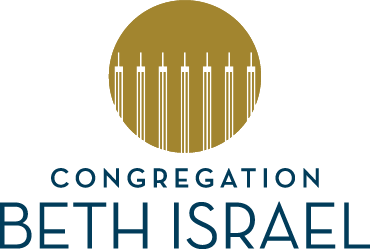“Wise Words in a Pandemic”

“Wise Words in a Pandemic”
From the desk of Rabbi David Lyon
In 1844, when the Houston Jewish community was beginning to organize itself more formally, Jewish leaders purchased land for a cemetery. Traditionally, it’s among the first formal steps that a Jewish community takes even before organizing a formal synagogue. Why? Because death happens without notice and our Jewish duty is to provide the dead respect and dignity with proper preparations and burial in sacred ground. On West Dallas Street, near downtown, Beth Israel’s first cemetery was established and is still in use, today. Though fewer burials occur there now, among the first to be buried were victims of the Yellow Fever, the epidemic of 1870’s. Some of the oldest tombstones still reveal the cause of death as Yellow Fever.
Around the same time, Rabbi Isaac Mayer Wise, founder and organizer of the Reform Jewish movement in America, reflected on the dire situation of those who struggled with and died from Yellow Fever. In a recent pamphlet published by the American Jewish Archives (Cincinnati, OH, americanjewisharchives.org), and written by Rabbi Gary Zola, Ph.D., AJA Executive Director, we can read Wise’s words and commentary on this period. Separated by 150 years, the Yellow Fever still teaches us how the human spirit can rise to meet the needs of such a crisis.
Rabbi Isaac Mayer Wise wrote, “Many an aching breast today bemoans the loss of what was nearest and dearest; many a heart that beat high and brave is stilled forever; many a bright eye has become glazed and dull; hands that never tired of doing good are idly folded; feet that were swift on errands of charity will move no more; souls, whose every impulse was great and generous, have returned to their Maker…But still above all the misery, above all the desolation, there loomed forth the rainbow of promise in the gloomy sky, the tangible evidence of the innate nobility of man. Men, not one, not hundred, but thousands, were found who gave willing service to the cause of humanity, who at the risk of almost certain death gave proof of their allegiance to their kind.”
In every generation, during an epidemic, in a war, and in every human suffering, the human spirit is summoned to respond. As it was then, so it is now, that each of us has a role to play. By training or self-examination, we learn what we can give. Some retreat but many others extend themselves well beyond the call of duty to save lives, to heal the wounded, and to provide comfort and hope. I’ve witnessed, first-hand, the result of negligence and ignorance about the pandemic. I’ve also witnessed, first-hand, remarkable feats of heroism among first responders and front-line workers. They’ve encountered dire circumstances and brought more than they had to give. Selflessly, they healed and comforted those whose lives were unknown to them except that they were ill and needed care. It’s the human spirit at work, summoned to respond.
When the pandemic is over and we reflect on what has happened to us, what will we record in the history books? What will we want others to know about what we’ve done? Again, Isaac Mayer Wise, speaking to his generation that we might hear about it, too, teaches us wisely:
“[May we] all feel that the years have not passed in vain, that we have during its passage given some service to Israel, to our country, to humanity, [and] to our God.”
From generation to generation, let us bequeath more than our gifts; let’s also leave examples of our gifts to humanity in the form of lessons for all time.
L’Shalom,
![]()
Zola, Gary Phillip. Isaac Mayer Wise’s Op-Eds on the Yellow Fever Epidemics of the 1870s, The Jacob Rader Marcus Center of the American Jewish Archives, 2020.
